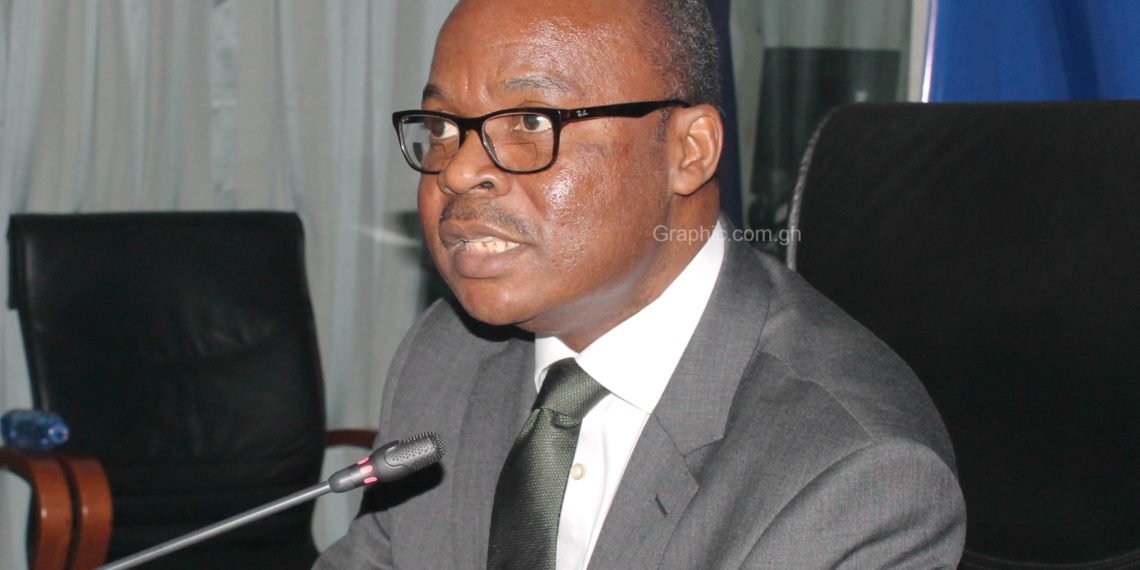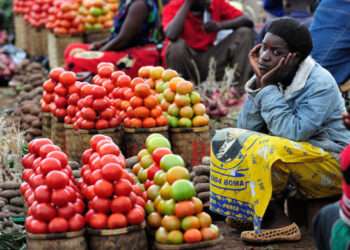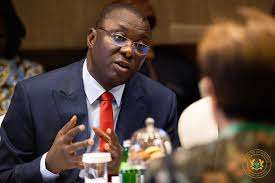Dr. Ernest Addison, the Governor of the Bank of Ghana, has stated that the country’s debt service indicators and gross financing needs have breached the sustainability thresholds.
According to him, although external financing requirement as a share of GDP has declined and within acceptable thresholds, efforts would need to be put in place to increase buffer levels to help meet future external obligations.
“Ghana’s public debt has reached 71 percent of the estimated GDP at the end of September 2020, fairly above the maximum early warning sustainability threshold of 70 percent for the Market Access Countries (MACs). The country’s debt service indicators and gross financing needs have breached the sustainability thresholds”.
In a speech delivered at the University of Ghana Alumni Lecture, Dr. Addison revealed that the non-resident holdings of the public debt, although declining, is still high at 59.9 percent of GDP, above the threshold of 45 percent for the MAC.
“Public gross financing needs are also above the 10 percent MAC threshold on the back of increased fiscal obligations, suggesting constrained fiscal space for growth spending”, the Governor warned.
The Governor indicated that the COVID-19 external shock has partly reversed the progress made on the macroeconomic stability front. He noted that so far, the fiscal costs, in terms of stimulus package deployed to moderate the adverse socio-economic consequences on the households and businesses, are estimated at over GH¢11.2 billion.
“If you add the financial sector costs and the energy sector costs, raises the estimate of the financial burden from these three sources alone to GH¢24 billion. As of half a year, it was estimated that the government paid GH¢4.7 billion in excess capacity payments in the energy sector. This has pushed the debt/GDP ratio above the threshold for the Market Access Countries”.
He, however, warned that going forward, difficult decisions will have to be taken to reorganize public finances and expenditure priorities while exploring more sustainable revenue sources.
“The program of interventions to revitalize businesses and cushion households will have to be defined to scale and there should be no expectation that these should become permanent obligations of government. The wide fiscal gap raises important financing issues, and its financing should not be by recourse to central bank funds as this will weaken the central bank’s ability to serve as the anchor of monetary and exchange rate stability”.
Dr. Addison however, hinted that at the end of the year, the government will redesign a medium-term macroeconomic framework to return the economy to fiscal consolidation and to further consolidate macroeconomic stability to provide an essential lever for positioning the Ghanaian economy on a path of higher growth, job creation, and a faster pace of poverty alleviation.
He noted that public debt levels have risen due to the necessary fiscal expansion in the short-term to contain the impact of the coronavirus pandemic.
He explained that this has necessitated the urgent need to design a plan to bring down the debt to sustainable levels to contain risks posed to future financing of the budget, exchange rate stability, and financial sector stability post-COVID-19.
The framework, according to the central bank’s Governor, “should include a clear priority towards expenditure rationalization and efficiency, as well as improving revenue collection capacity”.
Dr. Addison also spoke on some measures that will be put in place to ensure financial sector stability in the medium term. He pointed out that in ensuring financial stability, the financial sector will require constant regulatory and policy attention to identify and mitigate emerging risks.
The symptoms of a weaker bank are usually poor asset quality, lack of profitability, loss of capital, excessive leverage, excessive risk exposure, and poor governance conduct as well as liquidity concerns.
He however assured that the Bank of Ghana will continue to strengthen all the regulatory measures implemented over the last three and a half years to maintain confidentiality and safeguard financial stability.
He further stated that the Bank of Ghana is optimistic that with this approach, a resilient and capable financial sector will be built to overcome the challenges brought about by the pandemic and ensure the soundness of the industry. He was quick to add that the individual banks themselves have a role to play in ensuring the stability and resilience of the banking sector.
“Over the next three years, in the aftermath of the pandemic, the Bank of Ghana will carefully unwind the countercyclical measures implemented and allow the financial system to function without the regulatory forbearance put into place due to the pandemic. Banks themselves will have to remain vigilant, upgrade staff capabilities, and improve the governance and risk culture”.





















